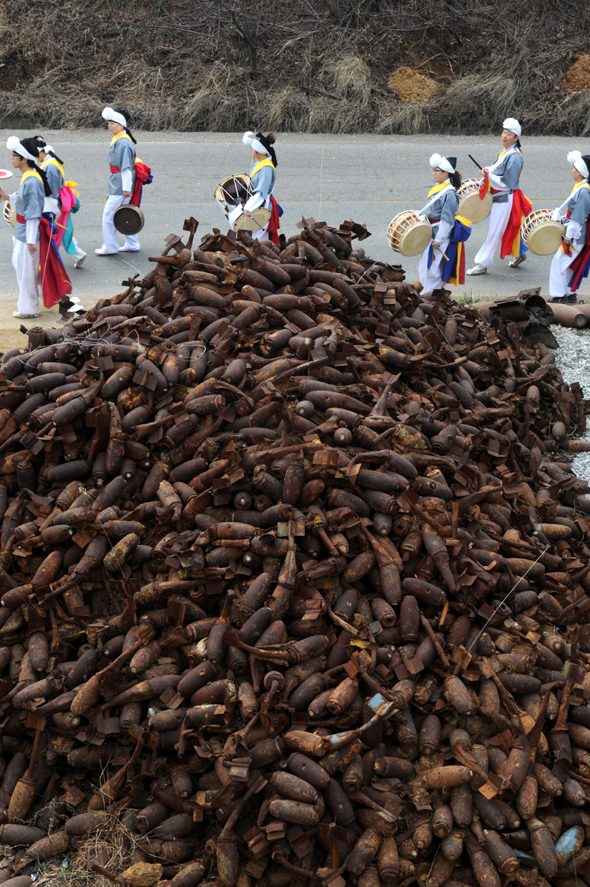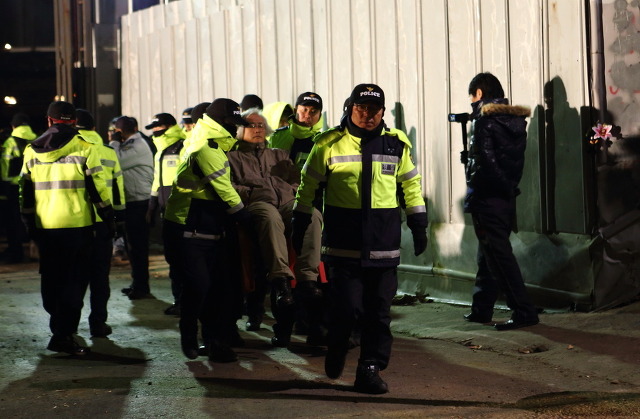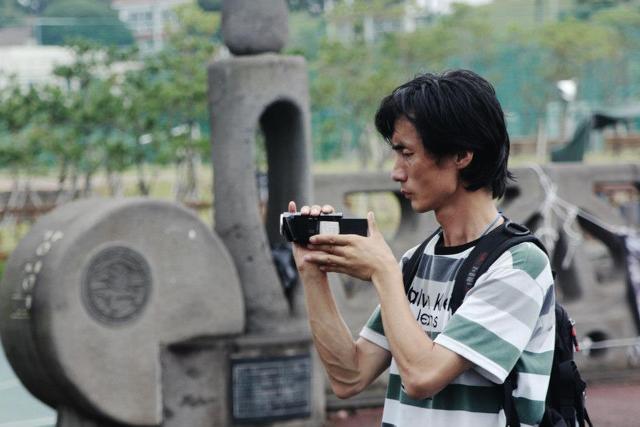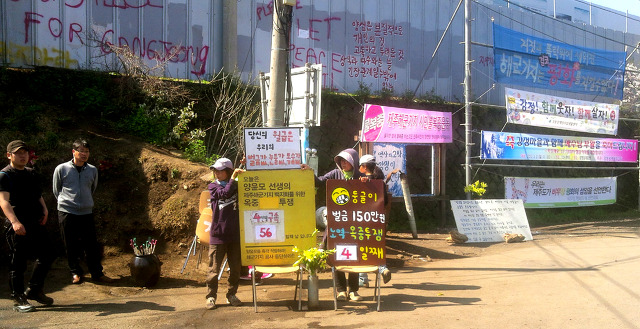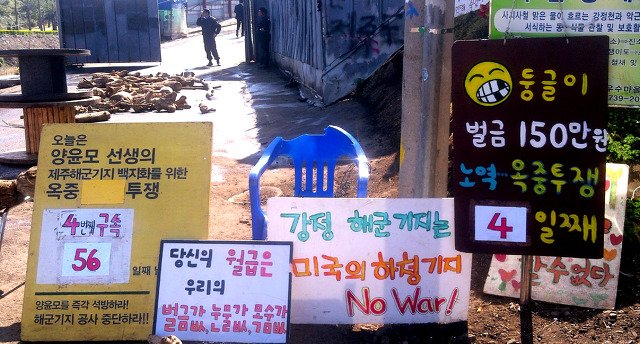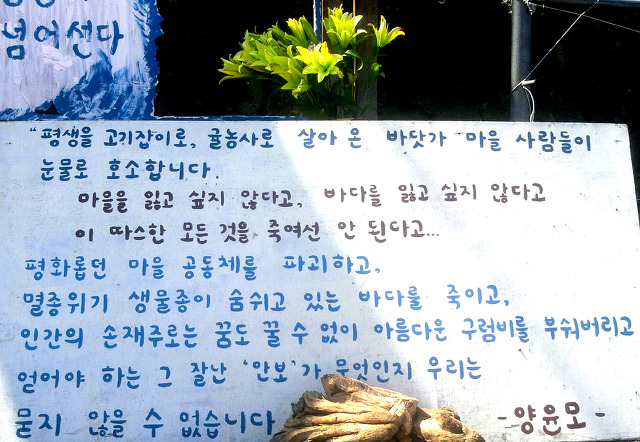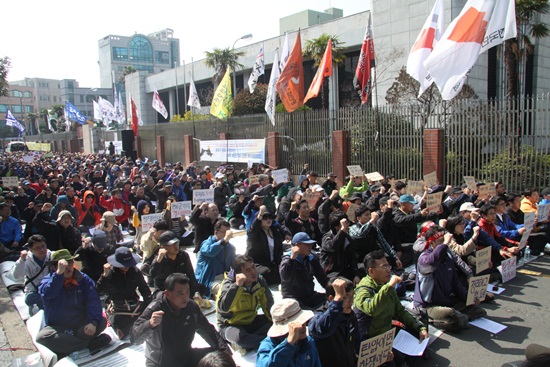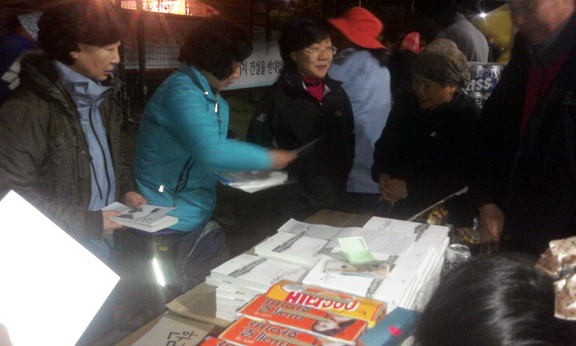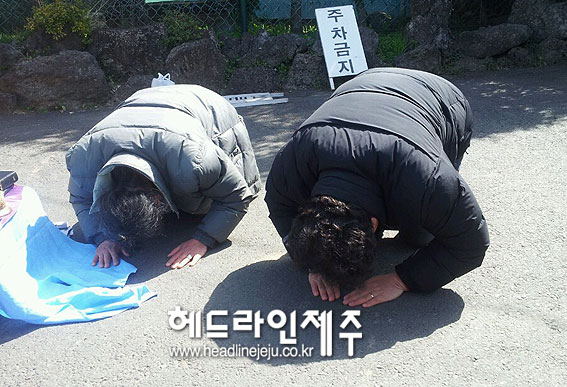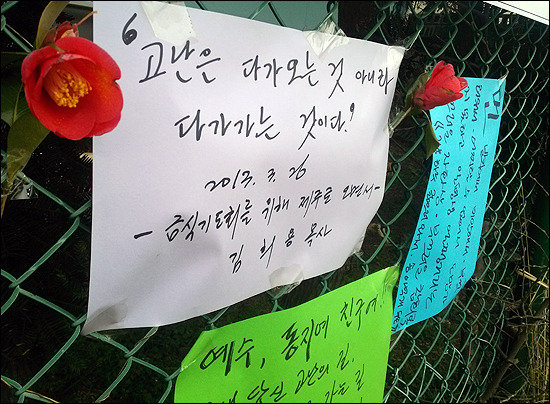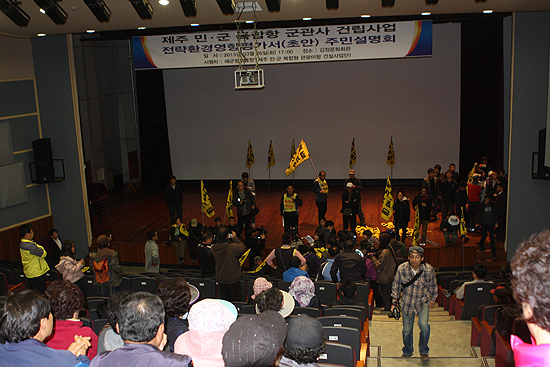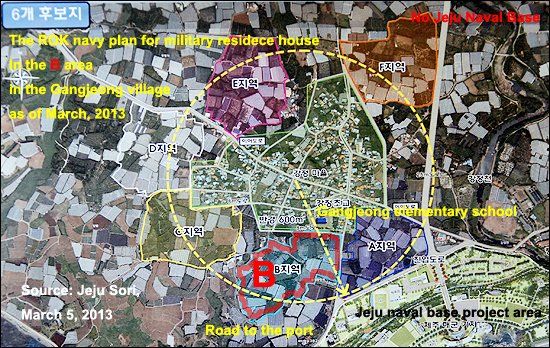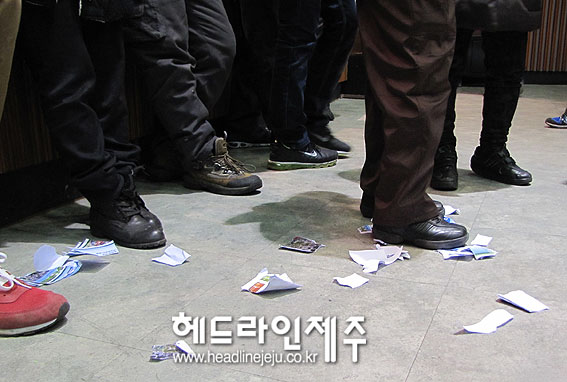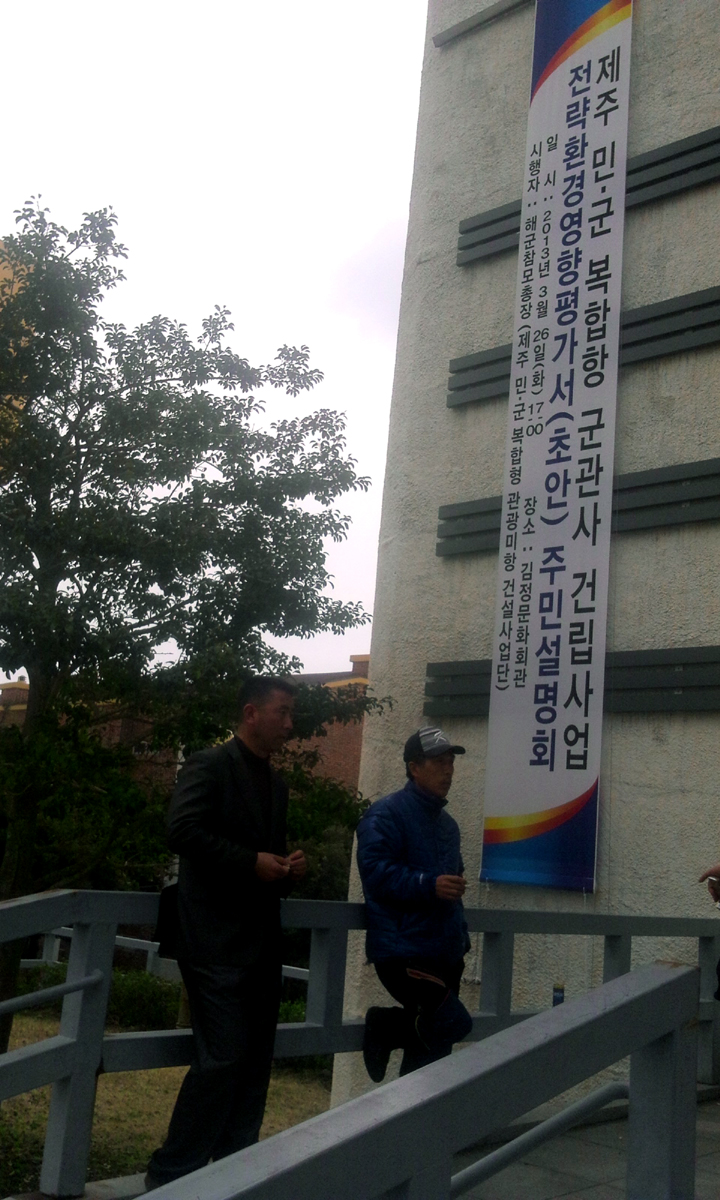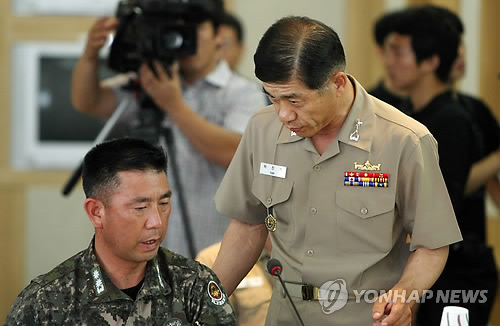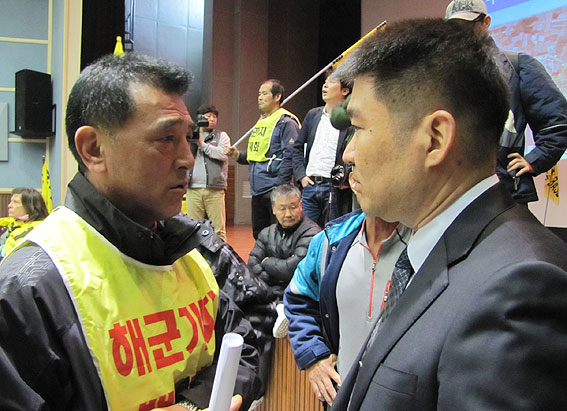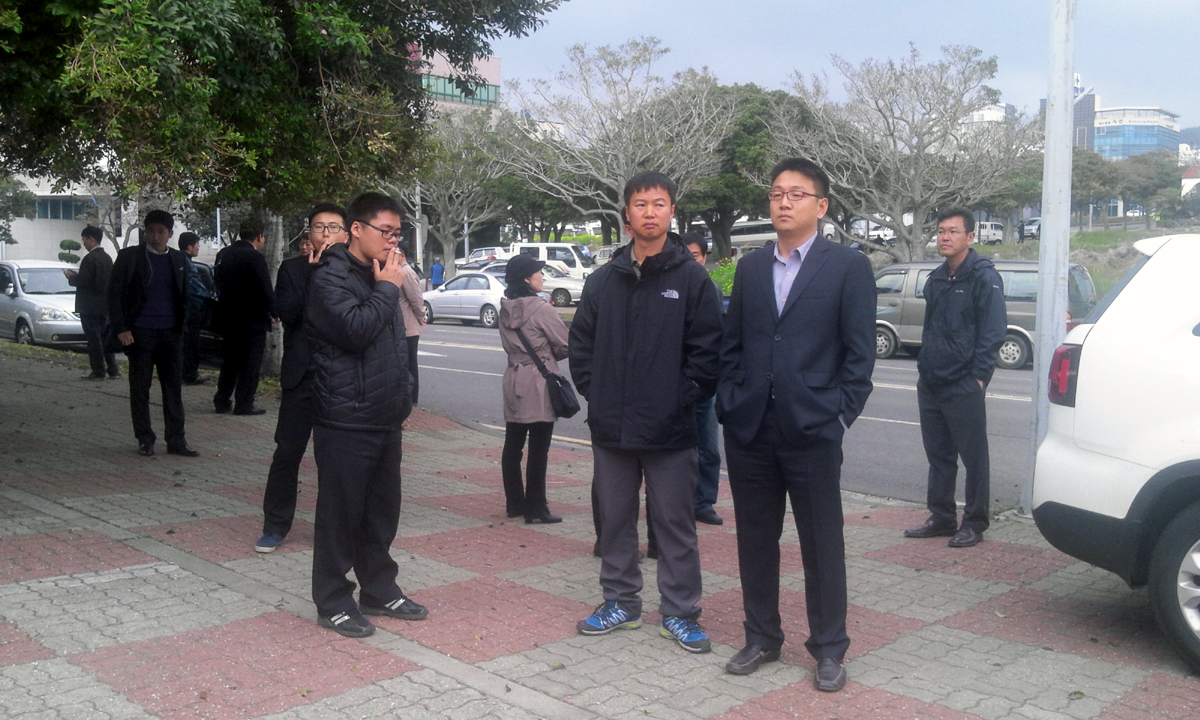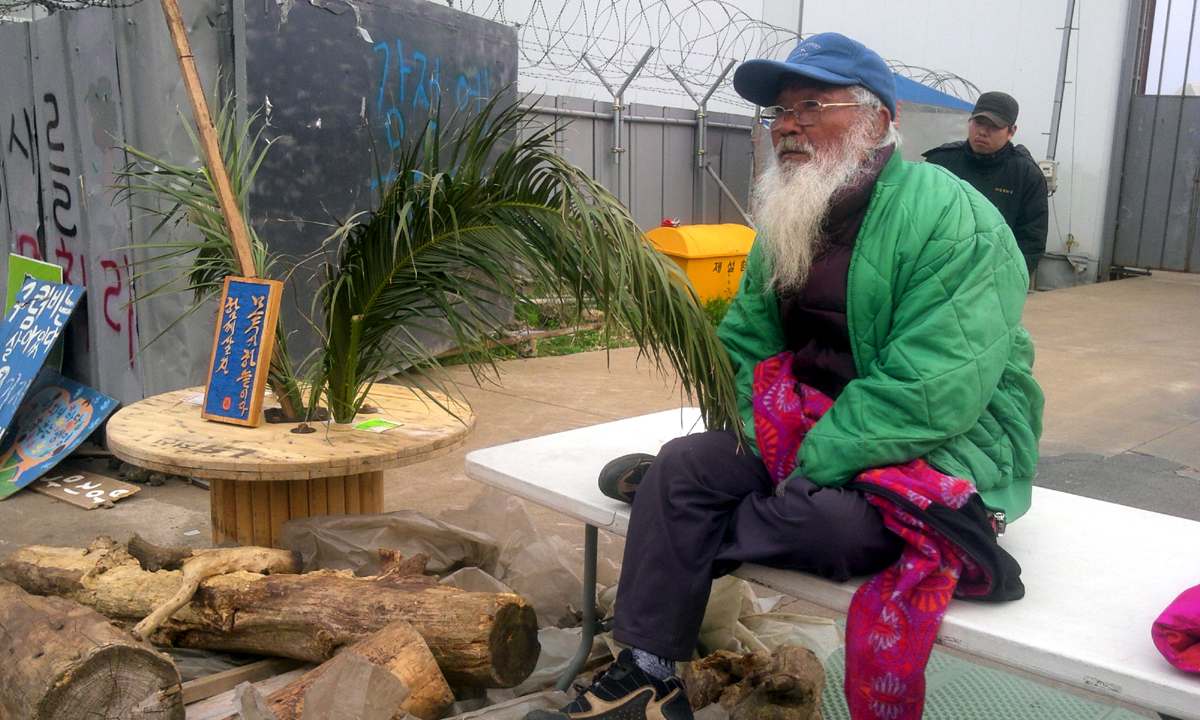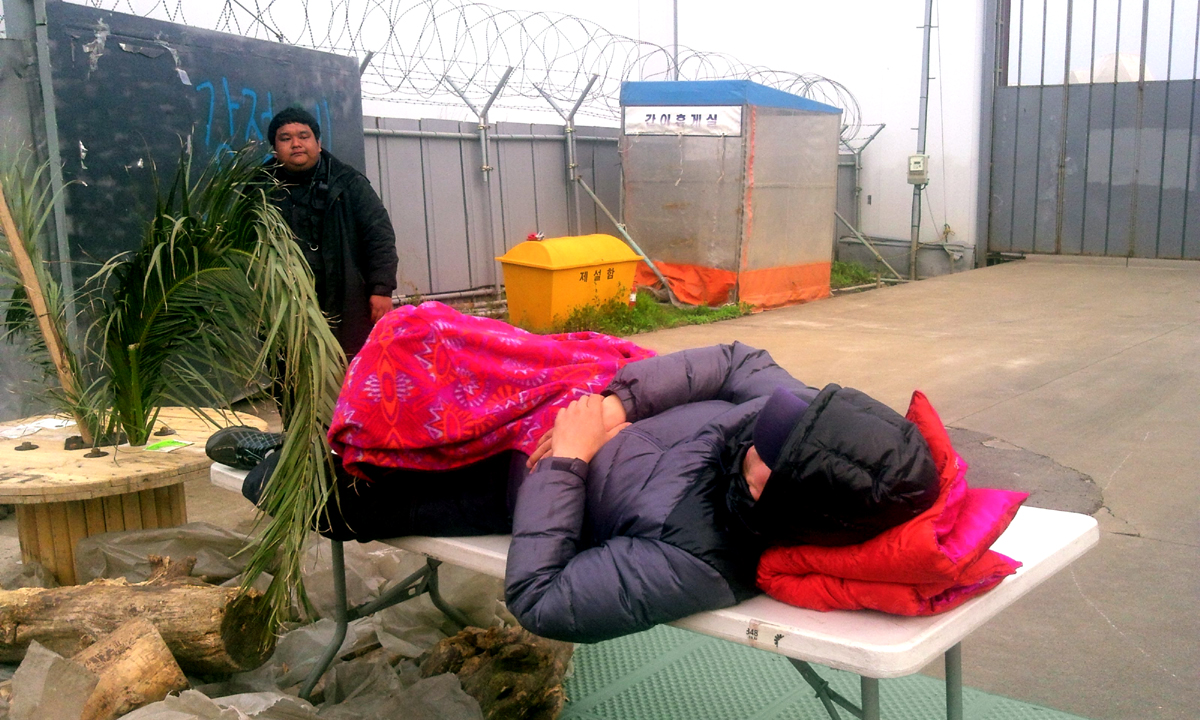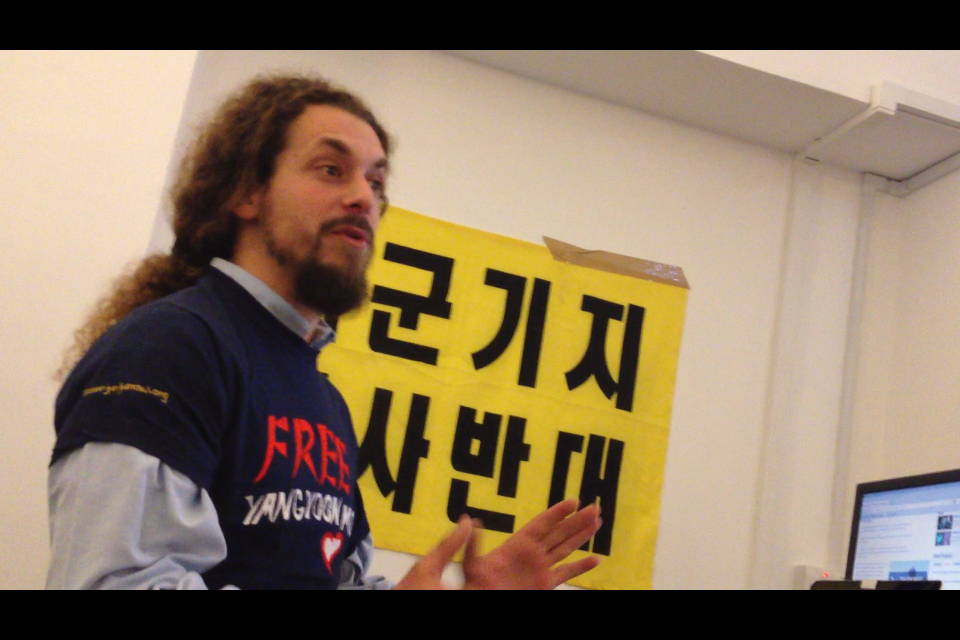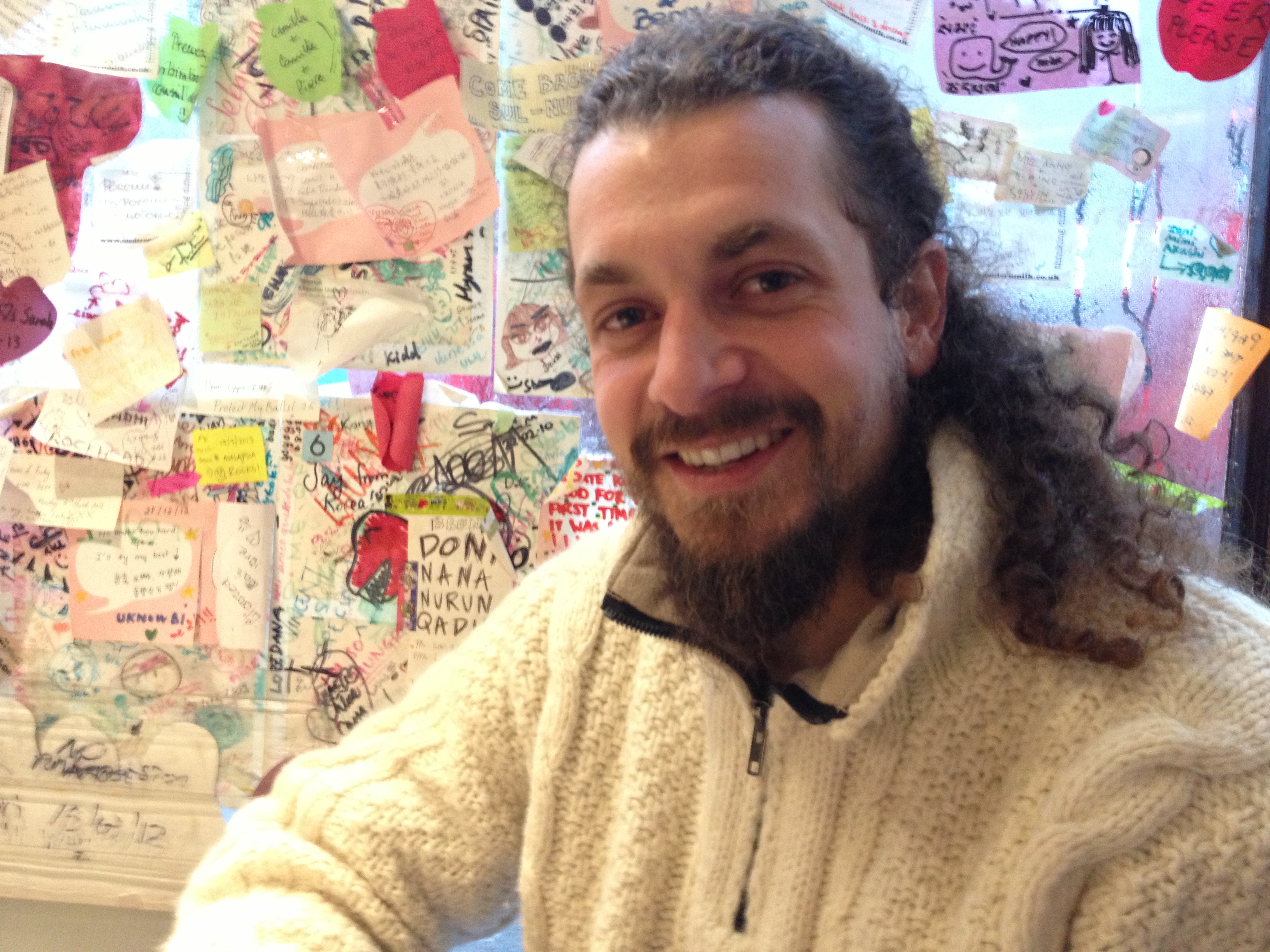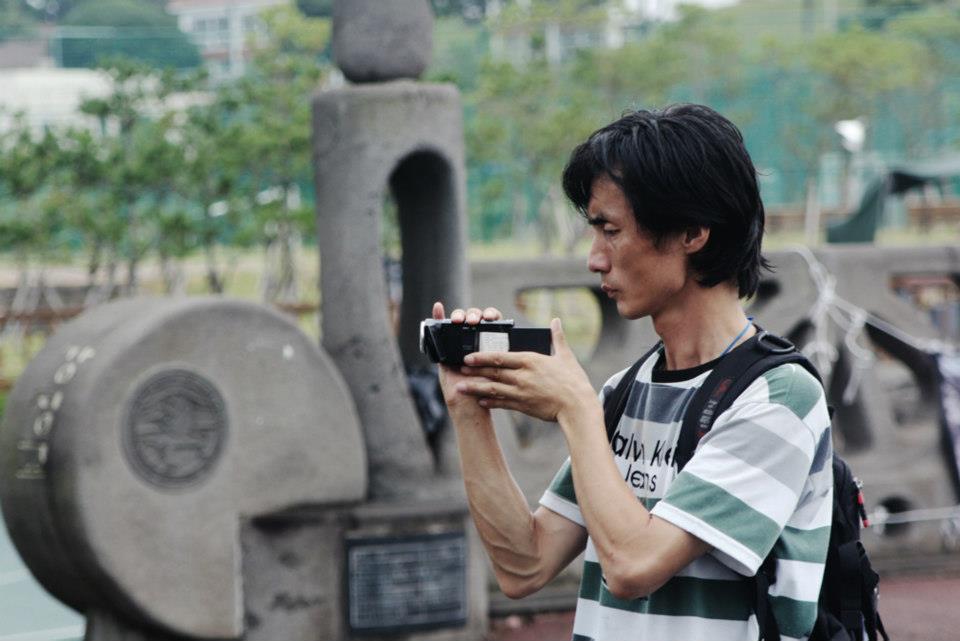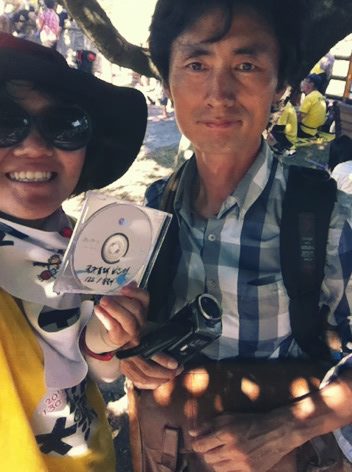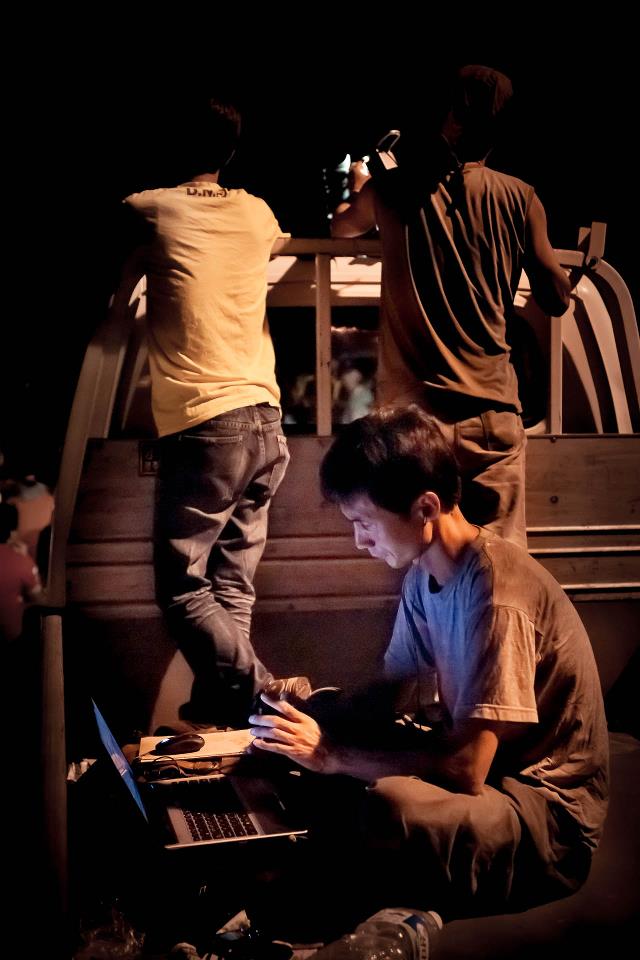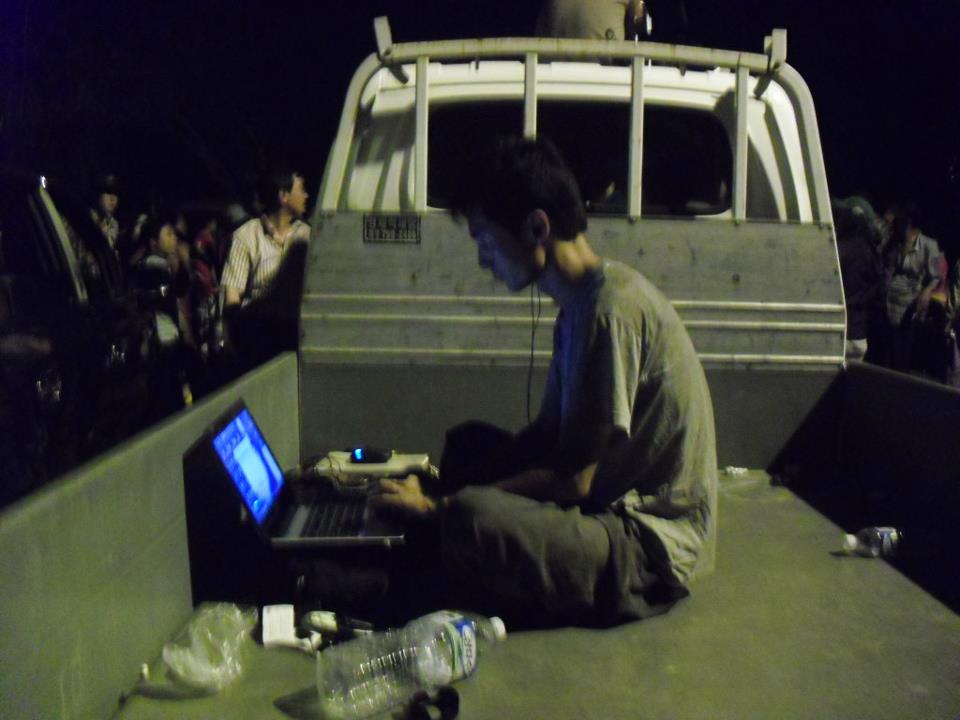Re-posted from the Foreign Policy in Focus
By Christine Ahn, March 8, 2013
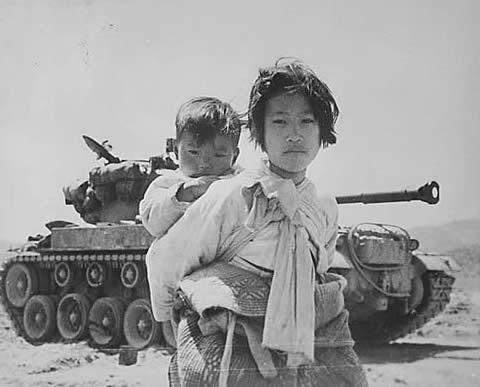
As women around the world gather to celebrate International Women’s Day, a light needs to be shone upon the Korean peninsula where a tinderbox situation is about to erupt into a full-blown military conflict.
In response to the U.S.-led UN Security Council sanctions against North Korea for testing its third nuclear weapon last month, the DPRK has threatened to both nullify the 1953 armistice agreement that halted the Korean War and preemptively strike the United States. The North Korean foreign ministry said in a statement: “Since the United States is about to ignite a nuclear war, we will be exercising our right to preemptive nuclear attack against the headquarters of the aggressor in order to protect our supreme interest.”
While escalations of tension are nothing new, what they are revealing is that a major game changer is needed to break the silent stalemate between the United States and North Korea. And it’s going to take more than Dennis Rodman’s trip to North Korea. It will require the United States to take greater responsibility and leadership to end the Korean War, as well as a feminist, anti-militarist approach to achieve peace and justice on the Korean peninsula.
Why the U.S. Must Take Responsibility to End the Korean War
In 1948, after the close of the Second World War, the United States, with a nod of agreement from the Soviet Union, divided the Korean peninsula. During the war, the United States led the United Nations Command in waging a brutal scorched earth air bombing campaign across the Korean peninsula, particularly in the north, where U.S. bombs leveled 80 percent of northern cities and destroyed agricultural dams—actions considered war crimes under the Fourth Geneva Convention ratified that year.
The Korean War was incredibly vicious. More bombs were dropped in Korea than on all of Europe during World War II, and U.S. President Harry Truman threatened to drop another atomic bomb. And it was during the Korean War that napalm was first used against civilians. Within three months of the war’s outset, 57,000 Korean children were missing and half a million homes were damaged or destroyed.
One year into the war, U.S. Major General Emmett O’Donnell Jr. testified before the Senate, “I would say that the entire, almost the entire Korean Peninsula is just a terrible mess. Everything is destroyed. There is nothing standing worthy of the name…There were no more targets in Korea.”
It wasn’t until some 4 million people had been killed that the Korean War came to an unresolved end on July 27, 1953 with a temporary armistice signed by the United States, North Korea, and China. South Korea was not a signatory because it had ceded military power to General Douglas MacArthur. A permanent peace agreement has never materialized, which means the war is technically still on. Sixty years later, the Demilitarized Zone (DMZ) remains the world’s most heavily militarized border, with South Korean, North Korean, and U.S. troops poised for war amid over 1.2 million landmines.
We are facing, once again, perilous times as tensions escalate in the Asia-Pacific. Most western governments and the mainstream media point to North Korea’s third nuclear test and perceived belligerence as the cause of the escalation when in fact there are two major initiatives fueling this militarized response.
First is the so-called “pivot.” In 2011, the Obama administration announced a plan to transfer significant military resources to Asia and the Pacific, including expanding bases, surveillance, and equipment. The Pentagon has committed to deploying 60 percent of its air and naval forces to the region, including sending U.S. troops to Vietnam, the Philippines, and Australia. Without a doubt, the “pivot” is exacerbating tensions in a region that has still not resolved conflicts from the last century.
Second are the perennial U.S-ROK joint military exercises against North Korea. North Korea justifiably views these war games as acts of provocation. The annual U.S.-ROK “Key Resolve/Foal Eagle” war games, usually staged in March, and “Ulchi Freedom Guardian” in August typically last for months and involve tens of thousands of U.S. troops and hundreds of thousands of South Korean troops. In the exercises, U.S. Army, Navy, Air Force, Marine, and Space Command forces simulate overthrowing North Korea’s leadership, occupying Pyongyang, and reunifying the peninsula under U.S. and South Korean control.
When I think about the impact of all this militarization, I think about the elderly rice farmers in Pyongtaek who used their bodies to defend their community from being bulldozed to accommodate the expansion of a U.S. military base. I think about the tangerine farmers and women sea divers of Gangjeong village on Jeju island struggling day and night to stop the construction of a U.S.-backed Korean naval base. This is what the militarization of the Korean peninsula looks like, and the only road to peace runs through Washington.
Why women’s leadership is crucial
Women’s organizing to end the Korean War is strategic for three key reasons.
First, the war has a disproportionate impact on the lives of women. As feminists, we know that nationalism, patriarchy, and militarism intersect. The militarization of the peninsula naturally leads to greater masculinization of society, which increases violence against women, including sexual violence by U.S. servicemen and the reallocation of resources from social welfare towards the military. But the partition also has very real consequences for North Korean women, especially those seeking a better life outside of North Korea.
According to estimates by aid workers, 80 to 90 percent of female refugees from North Korea are trafficking victims. At a women’s circle in South Korea, one 19-year-old escapee talked of being raped four times during her journey—once by the Korean Chinese man who promised to find her work in China, a second time by the Chinese man who hid her from the authorities, a third time by the South Korean coyote who brought her into the country, and a fourth time by the South Korean CIA. This she had to endure so she could survive.
Second, given our relationships with our families, children, and community, women have a reality check that is seldom there for men. Not only can women can bring into greater focus the experience of women and girls in militarized societies and armed conflict, we can provide crucial insights into the day-to-day consequences of the ongoing war on peoples’ lives.
Finally, the deadlocked situation calls for game changers. As a group of people outside the structures of power, we have to use our ingenuity to go beyond conventional paths outlined and dominated by patriarchal institutions. Women are not cowed by limited notions of solutions; we use our imagination and creativity to break through repressive structures.
Lights on the Water
Once, in the fall of 2009, I woke up in the middle of the night. Instead of continuing to toss and turn, I decided to switch on my computer. On the homepage of the New York Times read the headline, “North Korea Opens Dam Flow, Sweeping Away 6 in the South.” North Korea had lifted the floodgates of a dam on the Imjin River, sending a tidal wave south and killing six South Koreans, including an 8-year-old boy. The water level had doubled, which meant North Korea’s farms could flood and wipe out the season’s harvest. To avert this perilous situation, North Korea allegedly released the water without any advance notice.
This is so ridiculous, I thought to myself. Why can’t these two countries — that speak the same language, eat the same food, and share over two millennia of history — just communicate? Why couldn’t Kim Jong Il just have picked up the phone and given South Korean leader Lee Myung-bak a heads up?
After being thoroughly depressed about the situation of the two Koreas, I finally fell back to sleep. And then I had the most vivid dream, which I’ve held onto as hope for the future of a united Korea. In my dream, I was wading in a river alongside other Koreans. It was before the break of dawn and we were anxiously waiting for Koreans from the north. And just over the crest of the horizon, a light glowed. It was a group of people holding candles wading down the river. As we met in the river, there was an overabundance of joy and intense embrace. But I kept going forward up the river, bypassing this emotional scene to find the source. I came upon a ceremony of women huddled around a huge kettle stirring thick black liquid and pouring ladles of it into little pails carried by children. It was at that moment when I awoke and realized, aha, it will take Korean women on the peninsula and throughout the Diaspora to bring about peace and reunification for Korea.
Now I have no idea what was in that black liquid, but what I do know is that peace and reunification on the Korean peninsula must be advocated without supporting any particular nation-state. We don’t want the reunification of two highly patriarchal, militaristic societies. Our immediate task is to talk about the unfinished war’s militarization of the Korean peninsula and the consequent violence against women, children, and the future. We need to confront head-on the military buildup that is destroying livelihoods, communities, and the natural world.
So what can we do? We are powerless in the face of the military industrial complex, and we are cynical in the face of over 60 years of unfinished war. I don’t have the solutions, but I do have some dreams.
Imagine if people severed the barbed wires along the DMZ and transformed it into an ecological park. Imagine if the elderly could board a bus that would take them to visit their families in cities in the north, like Kaesong, Nampo, or Pyongyang. Imagine if the resources allocated to buying drones or to launch a satellite were instead spent on education, childcare, or support for single mothers. Imagine if North Korean farmers could access all the materials they needed to yield abundant harvests.
Central to all of this is ending the Korean War, with the United States signing a peace treaty with North Korea. But it will take more than signing a document to end over half a century of enmity and mistrust—it will take a new approach to achieving security. This is why it will take women’s leadership, because women realize that genuine security means having health, education, and freedom to live without fear and want. From Ireland to Liberia, women have stood up to end violence and conflict. We can and must do the same for Korea.
